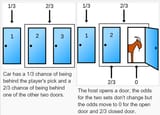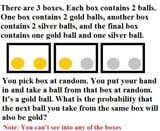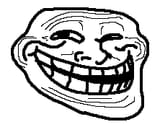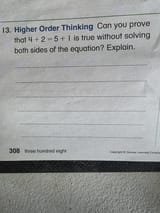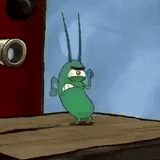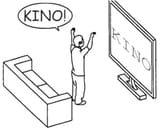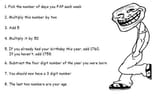>>712723113
Let me try and explain it again, simple but thorough. This is from the perspective of someone who has no math skills, just someone who gets it. Once you get it, it will fully make sense too. It's NOT about how many doors are left to pick between, it's entirely about how slim your chance of being correct was in the first place and how much better the chance is afterwards.
You've probably been told before to imagine instead that there were 100 doors, with 99 goats and 1 prize. But let's go through this again becuase it really does help you understand it better. If you had to pick one of these 100 doors, you would only have a 1/100 chance of being correct. THAT'S what's important here, the first intitial choice and how bad the chance of this being correct is. Next, the host deletes 98 other doors, all of which contain goats, and leaves only one other door, and the host knows for sure there is either a prize behind your door or the other door he left. Now the chances of the prize being behind the door he left IS 1/2, but the chances of the prize behind your door REMAINS 1/100. It doesn't magically become 1/2 just because the host revealed which other doors had goats behind them. Really think about this.
Now imagine doing this with 50 doors. It's the same. The door you initially picked has only a 1/50 chance of being correct, the door he leaves after deleting 48 goat doors always has a 1/2 chance of being correct. Imagine this with 25 doors. The door you initially picked only has a 1/25 chance of being correct, the door he leaves has a 1/2 chance.
This works all the way down to 3 doors. The door you initially picked only had a 1/3 chance of being correct, but the door he leaves has a 1/2 chance of being correct. It's NOT about how many doors are left remaining, it's about how poor your chances were when you made your first choice.
